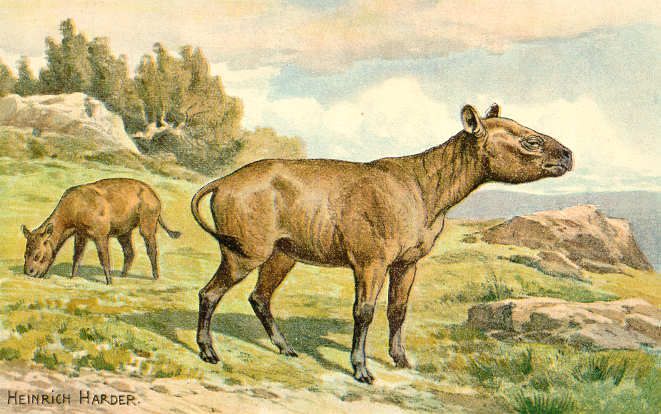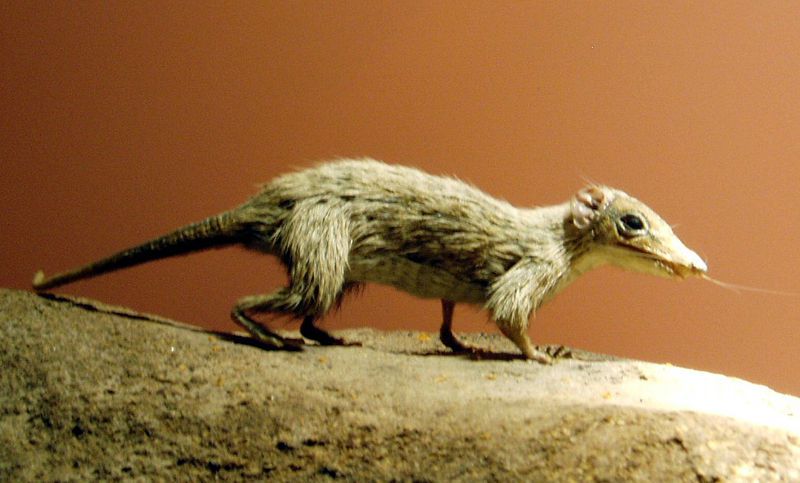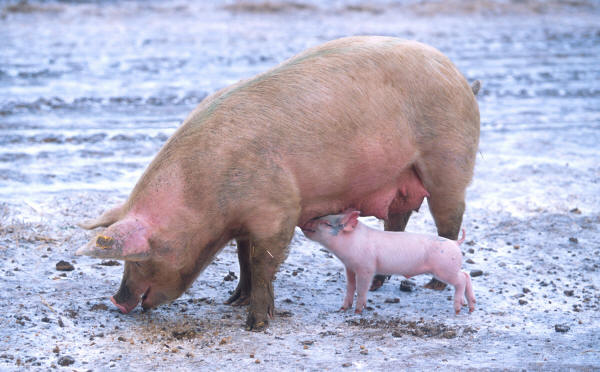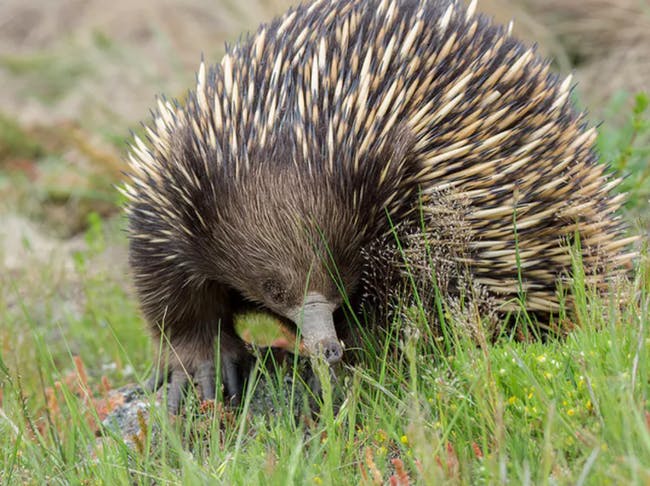 7Mammals
7Mammals
Around 130 million years ago, a branch of the reptile family split off and a tiny, mouse-like creature emerged: Introducing the first mammal! From that early beginning have evolved approximately 6,500 different species of mammals living today.
Evolution: From Reptiles into Mammals

Most reptiles are warm blooded and need warmth from the sun in order to be active. Mammals evolved several new strategies for conserving body heat.
The platypus is an early type of mammal that still has some reptilian traits. Species, like the platypus help us see the evolutionary link between mammals and reptiles. Even though the platypus has hair like a mammal, it lays eggs like a reptile.
Full mammals have a spiral-shaped cochlea as part of their inner ear. Reptiles also have the capacity to hear, and have a cochlea, but the reptilian cochlea is shaped more like a banana. The platypus does not have a spiral shaped cochlea, but instead, has a cochlea that also has a banana shape.
Mammals: Living with Dinosaurs

Mammals and dinosaurs shared the same ecosystems for around 150 million years.
These warm-blooded creatures lived in nests and burrows, venturing out to forage after dark when the dinosaurs were sleeping.
Mammals: The Night Life and Hearing
Early mammals were nocturnal and relied on excellent hearing. Their finely tuned ears helped them to navigate in the dark, as well as communicate with each other through squeaks.
Mammals: Mama’s Warmth and Nourishment

Fish and reptiles lay eggs, but baby mammals grow inside the mother’s womb and, during infancy, are fed with their mother’s milk.
This early dependence is the basis for a social species with complex relationships.
Mammals: External Protection
While reptiles and mammals have similar body plans, one big difference is that mammals have fur instead of scales. This helps keep mammals warm and protects them from hazards in the environment.
Mammals Survive the Asteroid Hit
Around 66 million years ago, the dinosaur party abruptly ended when a giant asteroid hit the Earth, setting off a mass extinction.

While most of the larger life forms went extinct, the small, smart, adaptable foragers–mammals–managed to survive the crisis.
A branch of the mammal family split off as it evolved hands with fingers and thumbs.
What do You have in Common with Early Mammals?
Like these early mammals, you have highly sensitive hearing. You use the sounds of language to communicate with your family.
WHAT’S NEXT?
A branch of the mammal family split off and evolved into primates.
Learn More
Basic characteristics of mammals
https://www.wonderopolis.org/wonder/what-makes-an-animal-a-mammal
Looks good, but not able to make link work
https://www.nationalgeographic.com/science/prehistoric-world/rise-mammals/
Good basic info plus fun facts
https://www.ducksters.com/animals/mammals.php
Eight main mammal traits, excellent diagram
https://www.thoughtco.com/the-main-mammal-characteristics-4086144
